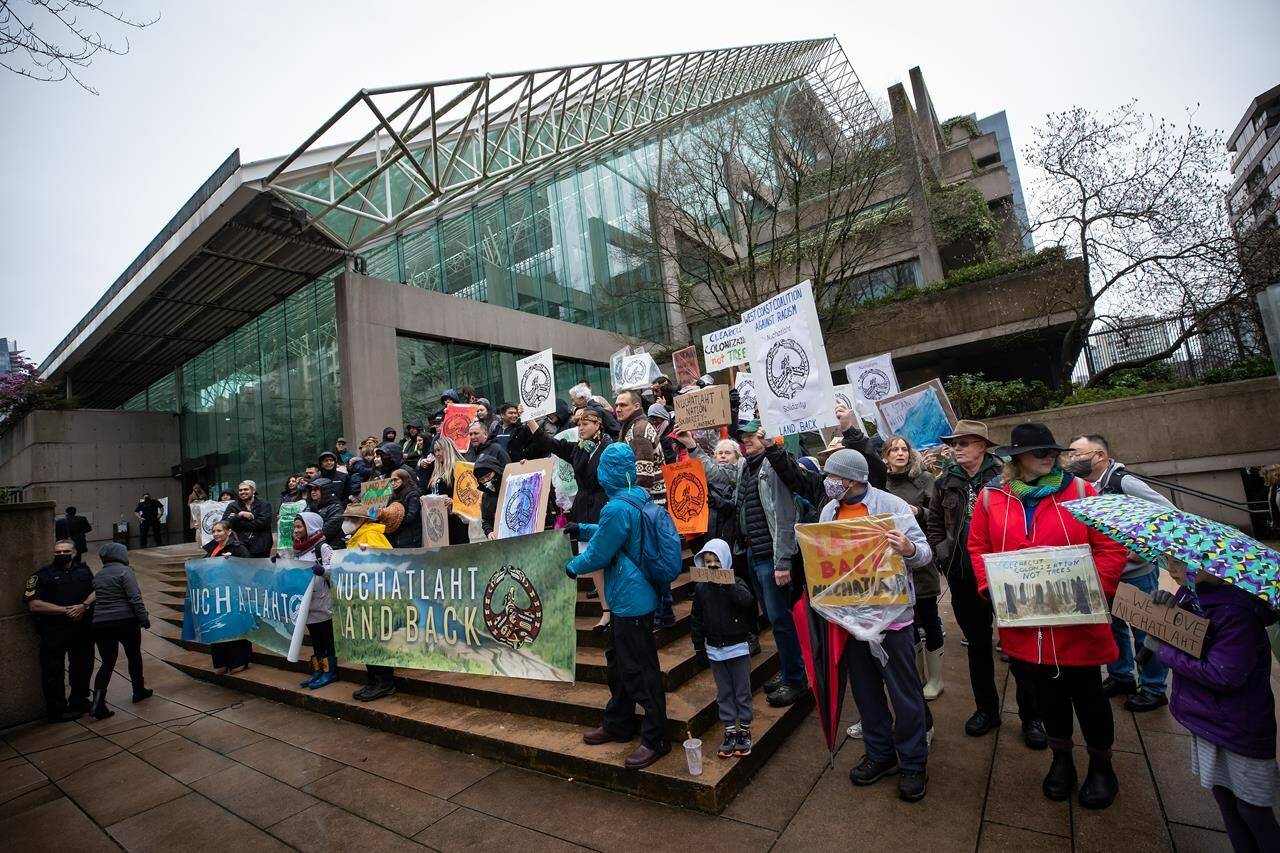After ruling last year that the Nuchatlaht First Nation had failed to prove Aboriginal title to 201 square kilometres of Nootka Island, a B.C. Supreme Court judge decided April 17 that the Nation does have Aboriginal title to smaller parcels of land in their territory.
Almost a year ago, Justice Elliot Myers concluded that the Nuchatlaht First Nation, had not demonstrated sufficient occupation over the total area they claimed and therefore had not proven their claim to Aboriginal title. However, the judge said in last year’s case that there may be smaller areas the Nation can establish Aboriginal title but that would require another hearing. In August of 2023, the federal and provincial governments agreed that the Nuchatlaht could argue for title on a limited basis based on the evidence presented at trial.
READ MORE: Nuchatlaht did not prove title for entire Nootka Island claim: B.C. Supreme Court
A second hearing was held March 11-13 of this year in Vancouver in which the same judge decided on April 17 that he agreed that Aboriginal title does exist for smaller parcels of land mostly near existing reserves on the northwest point of Nootka Island on the south shore of Esperanza Inlet. Nootka Island is located off the west coast of Vancouver Island northwest of Tofino.
“Given the evidence, it would be artificial to restrict the area of sufficient occupation to the reserve boundaries,” Justice Myers said in a written reasons for judgement.
The judge said there are details to be ironed out in establishing precise boundaries and that would be left up to negotiation.
During the hearing, the province put forward the position that it was reasonable to expect occupation of areas below the 100-metre elevation contour and confining the boundary to the 100-metre contour “reflects the distinction between the coastal and interior areas,” the judge said.
In his previous judgement last year, Justice Myers concluded that evidence of use of land in the interior of Nootka Island by the Nuchatlaht was lacking. In that ruling, the judge did acknowledge that the case demonstrated the peculiar difficulties of a coastal Aboriginal group meeting the current test for Aboriginal title, given the marine nature of the culture. For example, the judge said, there will probably not be trails between one coastal location and another, given that the means of transport was primarily by canoe. This indicates a need for a “reconsideration of the test for Aboriginal title as it relates to coastal First Nations. That would be for a higher court to determine.”
Meanwhile, the Nuchatlaht were congratulated by the Nuu-chah-nulth Tribal Council (NTC), of which they are a member, on their court victory and for not giving up on having lands in their territory declared to be theirs.
“When all other avenues like the BC Treaty Process and reconciliation agreements did not work, the Nuchatlaht were forced to go to court to prove their title and we are happy they have had some success and wish them success as they appeal to have the remainder of their territory declared Nuchatlaht Title lands, said NTC president Judith Sayers.
READ MORE: Lawyer for First Nation says goal of Nootka Island land claim case is reconciliation

